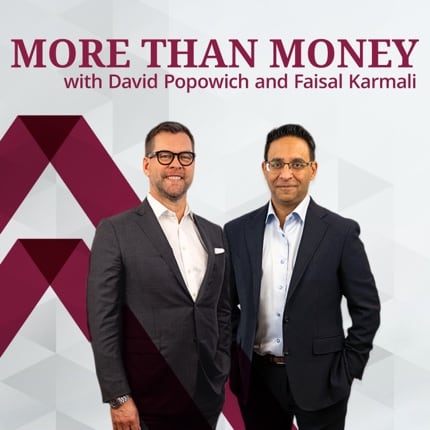It has been a wild two years.
Post-pandemic uncertainty. Volatile markets. Geopolitical risk.
It’s no wonder people are experiencing fear. However, when you make investment decisions based on emotions rather than on strategy, it can cause your retirement plans to go off the rails.
The best way to fight fear is with facts. We want to bust some of the myths we hear all the time as portfolio managers so that you can make informed decisions about your portfolio.
1 Myth: The expectation of a stock market correction justifies keeping your money on the sidelines.
When it comes to retirement, one of the biggest fears that Canadians have is running out of money. That fear can motivate them to pull money out of the markets if they are expecting a correction.
The fact is that market corrections will happen. And they happen far more frequently than you likely think. If you look at TSX data since 1971, declines of at least 5% happen almost every year. Drops of 10% or more happen 6 out of 10 years. And 4 out of 10 years, we see drops of at least 15%.
If you are retired and relying on your investments to fund your lifestyle, you can’t afford to dip into your capital when markets are down 15%. History shows that investors who stay invested through fluctuations are rewarded, as the average return–even in years with a correction–is positive.
If you’re going to stay invested, you need to have a strategy. Our team uses an asset dedication strategy to achieve the different, often mutually exclusive goals our clients have as they progress through retirement. For example, we set up what we call an income bucket to alleviate that fear of running out of money by dedicating assets to provide a predictable source of income that will last. The assets in the income bucket are not invested in the stock market, so they are protected from volatility. A second bucket–the growth bucket–helps your portfolio profit by investing in the market in strategic ways. As this bucket grows, it refills the income bucket.
Whatever strategy you choose, you will also need the discipline to stick to it even when market swings are wreaking havoc on your emotions.
2 Myth: Investors should be fearful of recessions as they entail heavy financial losses.
It is human instinct to run in the opposite direction of whatever is causing us fear; however, when it comes to recessions, history suggests we do the opposite.
Many Albertans will remember the financial crisis of the 80s. Falling oil prices, high unemployment, double digit interest rates. If you look at the full period of this recession–including the 12 months before and the 12 months after–the average balanced portfolio increased in value by 31%.
The ‘Tech Wreck’ marked a recession that lasted approximately 6 months in 2001. During the full period–again, including the 12 months before and the 12 months after–the average balanced portfolio decreased by 14%. This was the worst case we had seen since 1973.
More recently, we experienced a brief recession in 2020 during the pandemic. People who stayed invested in a balanced portfolio during the entire period saw an average gain of 28%.
If we take a step back and look at the historical performance of a balanced portfolio during the last 7 recessions, we see that the average return was -1%. This return may not be something to celebrate, but it is far from the catastrophic results many investors believe a recession will cause.
And let’s not forget that recessions are relatively rare events. Recessions are a part of an overall economic cycle; they are always followed by recoveries. If you keep the bigger picture in mind, it can help avoid the emotional decision making that can lead to long-term damage.
3 Myth: Investors can avoid catastrophic loss of capital by trying to time the market.
In order to time the market, you need . . . well, perfect timing. You need to get out at the top of the market when you are most excited about your investments and get back in at the bottom when you may be feeling the most fearful. Most people just don’t have the discipline or emotional constitution to do that.
Think about this example:
There are 7,600 days between January 2002 and September 2023. If you stayed fully invested in the TSX for every single one of those days, your rate of return would be 7.3% per year. However, if you were not invested during the top 10 trading days, your returns get cut in half. And if you take out the top 30 trading days during that period, your returns go to 0.
When you are trying to time the markets, you can’t afford to make an error. A more realistic approach would be to stay fully invested and tactical in your approach.
Need help separating the facts from fiction when it comes to investing? Come to our seminar on January 23 at The Country Hills Golf Club!
Register here:
Bloomberg
60% MSCI World (in CAD) 40% ICE Bofa Broad Canada Universe (FTSE 91-day index for the 1973-1975 recession). Total return from 12 months before a recession until 12 months after a recession. Recession dates are from NBER.
Bloomberg











